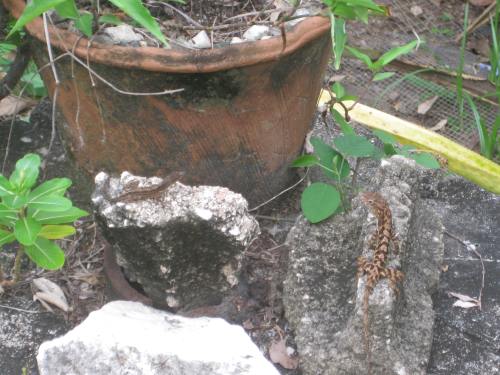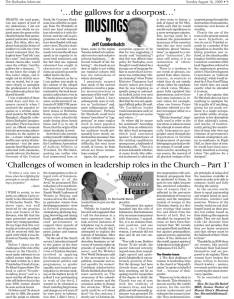Frustration, even anger, are not unknown emotions to most people. However, when they come and you feel that it’s because of something truly avoidable, they tend to intensify. I was enraged last Sunday (August 16) when I was unable to watch the men’s 100 metres final in the World Championships, from Berlin. I wanted to see history happen, with Jamaica’s Usain Bolt winning as in last year’s Olympics and breaking his world record set then. But, the machinations of a corporation or two who did not see it possible to help me and other people living in Barbados share that moment was all it took for frustration to turn to rage to turn to anger. Canadian Broadcasting Corporationcame to the rescue (oh, thanks, Canada), by cutting away from the ATP tennis at the Roger’s Masters Final in Montreal to show the race with a 15 minute delay.
In the meantime, I had gone ‘back to the future’: I had experienced the race live. An irate Jamaican friend on the phone in my left hand, was listening to me attentively. A friend who worked for VOB on the phone in my right hand, was giving me step-by-step commentary, that I was repeating to my Yardee. “They’re off. Bolt is ahead. Bolt surges ahead. No one in sight. Bolt wins! Bolt. New world record. 9.58 seconds. Usain Bolt…” At the end of my rebroadcast, my Jamaican friend was whooping and hollering, “Yes! We do it! Yes. Praise Jesus. Yes!”
But, why did we need to go back to the 1920s? It appears that Caribbean Media Corporation (CMC) had bought the television rights, but Caribbean Broadcasting Corporation had not paid to share those rights. So, we in Barbados lived the ‘hermit’s life on the momentous moment. It was not until Thursday, August 20, that CMC clarified what CBC had done. That was after….Barbados’ Ryan Brathwaite had created no small piece of history for this small rock, by winning the men’s 110 metres hurdles in 13.14 seconds, a new national record (which he had just broken with 13.18 secs. in the semis). Oh dear, Barbados had not been able to see its son have HIS day in the sun. People in Barbados were now very angry–they should have been since Sunday, but different strokes for different folks. “Why we cyan see dis? Why?” was the general call. But, praise CMC for making sure the right person is under the bus.
I love to see Caribbean integration possibilities wither and die: much as I believe that such integration is possible and could be beneficial, many do not. So, better to leave no doubts when you do not believe. CMC? It seems you did the right thing, so I read a correction to my letter below. CBC? Whatever your reasons for not buying the rights, you will be held up in the annals of history for a CRAVEN act. Some would like to suggest that the problem is simply that CBC has a new General Manager, Lars Soderstrom (a former international media consultant), who is non-Caribbean. That has to be too simplistic a view. It is about management generally, remembering that CBC is government-owned. If government is not influencing its policies then perhaps I need to look at the person with line responsibilities. No. CBC failed us–yes, it is personal–when success was so easy: snatching defeat from the jaws of victory–a rare talent. I suspect the capabities of a media company that does not see the need for, or merit in, putting dates on its online material; try a link and see for yourself. Would that the region were rid of craven actors. If anyone says that CBC’s actions were due to financial constraints I will demand a full and forensic investigation of their transactions over the past 12 months. Why? B.E.C.A.U.S.E. they did the same thing for the Beijing Olympics. So, craven then. Craven now. One word to describe them. Jon crow!
My letter, written early on Monday and sent to several newspapers (Gleaner-Jamaica; Advocate and Nation-Barbados), which reads more muted than I was, was published on August 21. Fittingly, the day when they could celebrate their first gold.
I am no politician and hold no political ambitions–never have. But, I want leadership that can feel people’s needs and cater to them. Leaders who are not simply ready to pass by possible moments in our history for reasons that have nothing to do with a gun being held to their heads. I want people who learn from mistakes leading and running institutions in the Caribbean. I DO NOT WANT JON CROWS NEAR ME! I am not carrion and am not to be fed upon as if I am dead and have no feelings. I do feel and I will respond. Jon crows need dead meat to survive. Stop feeding the Jon crow.
Read on, for the letter. My Living in Barbados blog, also has a piece that verbalises in Patois how I felt on the day (‘What a shame!’). Standard English is for ordinary moments. Patois is for expressions from the heart. There is a follow-on piece that tries to share the joy that was experienced when I found live coverage, in a sports bar in Barbados. I did share fully with Jamaicans and Barbadians THE moments when Usain broke the 200 metres record again, and took gold–the day before his birthday. I did see and live through the agonizing tension of the 100 metres hurdles, which after a blanket finish, needed many minutes to declare Ryan Brathwaite the winner. I did glow as Melaine Walker took gold in the 400 metres and laugh myself silly as the mascot took her on a lap of honour only to lapse into a stadium machine and turn Melaine into a pole vaulter. Some of those moments are also on my Living in Barbados blog (‘Rage ain’t nothing but a number’).
**************************************************************************************************
Here is the link to the Advocate letter. The printed text is below, with my correction regarding CMC/CBC inserted.
Where’s the coverage?
8/21/2009
THE joy of Caribbeans – in my case, Jamaicans – winning medals at the 2009 World Championships in Berlin has been a frustrating experience, or non experience to try to share. Those of us in Barbados have once again to endure what seems like a disregard for support for our region.
CMC [correction: CBC] did not buy the television broadcast rights. We have therefore been subjected to the displeasing situation of listening to the events, when broadcast, on radio. Just like in the good old Colonial days. I felt insulted as a national and as person of this Caribbean region.
We have reason to be proud, that our smallness in size and number is clearly no limitation on our ambition and achievement.
But it would seem that that pride is not shared or we will not be allowed to share it ‘live and direct’.
We look at the few symbols of regional unity and most of them are in tatters. We all know we are nationalistic, at least in part. It is natural. But we are also in need of integration and collaboration as a region. The action of CMC [correction: CBC] is to me another nail in the coffin of Caribbean unity. We saw how the region could share in the gains of one or a few nations as if we were all one.
I wont go to the historic racial significance of Berlin, and recall the ignominy faced by Jesse Owens in the 1936 Olympic Games in Berlin. (Many readers will only know this from history books, or now, the Internet, see http://www.timesonline.co.uk/tol/system/topicRoot/Jesse_Owens_at_the_Berlin_Olymp/).
I just note that many black athletes in 2009 have proudly shown solidarity with that moment by emblems denoting Jesse Owens.
All we ask is for CMC [correction: CBC] to show a little solidarity, too.
This was just too much for me.
Dennis Jones
**************************************************************************************************
The JPG version of the printed page is below (Advocate does not archive the print versions of the papers, for legal reasons).







 It goes beyond and looks at physchologists in the Ministry of Education.
It goes beyond and looks at physchologists in the Ministry of Education.  The bottom line: role models in the education system are essentially female. We see other aspects of that with the growing imbalance at the university level.
The bottom line: role models in the education system are essentially female. We see other aspects of that with the growing imbalance at the university level.